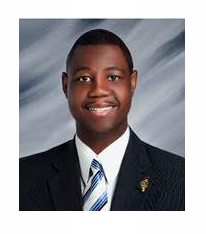United States Supports Negotiated Solution to Honduran Crisis
By Merle David Kellerhals Jr.
WASHINGTON — The United States supports the restoration of democratic and constitutional order in Honduras, Secretary of State Hillary Rodham Clinton says, including the reinstatement of ousted President Manuel Zelaya to finish his term.
Clinton met August 18 with Colombian Foreign Minister Jaime Bermúdez in Washington on bilateral and regional security issues, and told reporters at a press briefing that implementing a peace plan offered by Costa Rican President Oscar Arias, a Nobel Peace Prize winner, is the best choice in the current constitutional crisis.
“We continue to believe in the need for a negotiated solution and feel that President Arias’ plan was an excellent one for resolving this crisis,” Clinton said at the press conference with Bermúdez.
“So once again, we call on the parties to avoid steps that increase division and polarization in Honduras and needlessly place people at risk,” she added.
Also on August 18, a State Department delegation led by acting Assistant Secretary of State for Western Hemisphere Affairs Craig Kelly, along with officials from the U.S. Mission to the Organization of American States (OAS), met with a delegation from the interim Honduran regime, State Department spokesman Ian Kelly said. “The primary purpose, as I understand it, for this trip is for them to prepare the ground for a trip that’s being planned of a commission — I believe the foreign ministers from the OAS — that’s going to be going soon to Honduras,” Kelly said.
The delegations met at OAS headquarters in Washington, and U.S. officials emphasized the urgency for reaching agreement on the San Jose Accord proposed in July by Arias, Kelly said. “I’d like to emphasize this in no way is meant to imply any kind of acceptance of the de facto regime in Tegucigalpa,” he added.
Under the terms of the San Jose Accord, Zelaya would be reinstated for the remainder of his term of office, which ends in January 2010, and with limited powers; a general amnesty would be issued for crimes before and after June 28 when Zelaya was ousted; a government of national unity and conciliation would be created; international economic sanctions would be lifted; general elections would be advanced one month to October; and the Honduran armed forces would be placed under the authority of the national electoral commission one month before the elections. The presidential and legislative elections are scheduled for November 29.
The United Nations, OAS and others in the international community have urged acceptance of the accord.
Zelaya, who was democratically elected in 2006, was ousted June 28 and flown by the Honduran military to Costa Rica. He met with Clinton at the State Department in Washington. But efforts by Zelaya to return to the Honduran capital city, Tegucigalpa, ended July 5 when the interim government ordered his airplane not to land. During his attempt to land, thousands of his supporters clashed with Honduran soldiers and police at the airport.
The United States, which is a member of the Organization of American States, voted with the rest of the organization, 33–0, on July 4 to suspend Honduras from the group, a senior U.S. administration official said in a special State Department background briefing on July 5. The OAS action was taken to isolate the country’s interim regime in an effort to restore legal order, the senior official said.
The United States has halted nonhumanitarian aid to Honduras until the mediation process is completed and there is a resolution of the critical issues.


